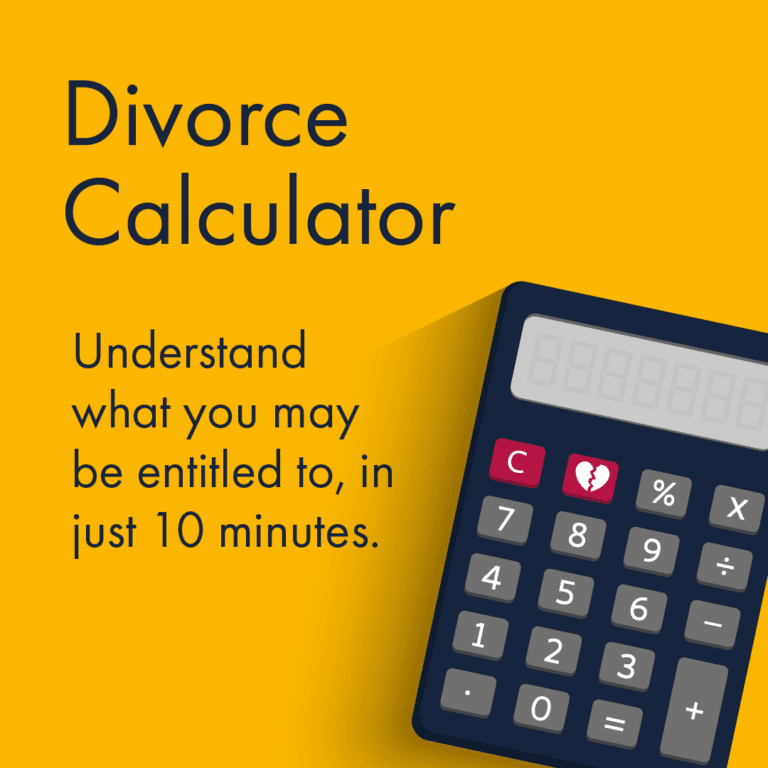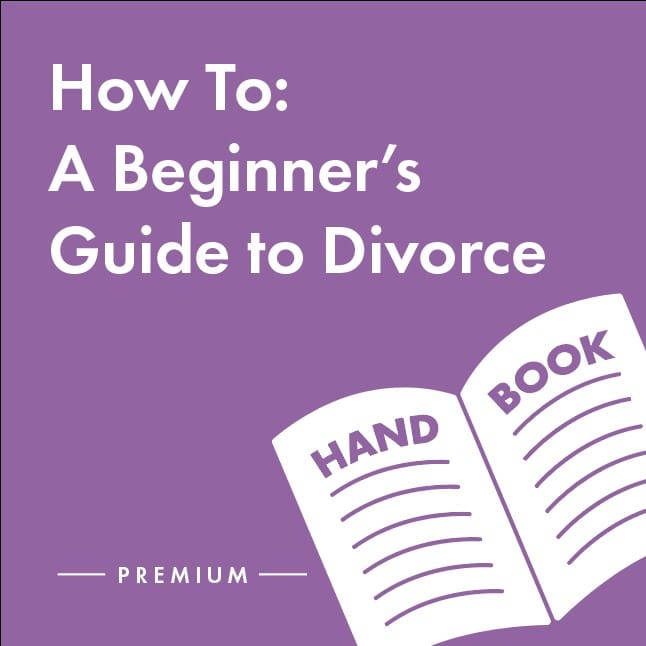 Use the calculator
Use the calculator
What is classed as inheritance in divorce?
Inheritance in divorce refers to assets that are passed down to one spouse when someone passes away. These assets can take various forms, including:
read more- Cash
- Investments such as stocks, bonds or shares
- Jewellery or treasured family heirlooms
- Antiques
- Real estate like homes or other properties
During divorce proceedings, inheritance is typically treated as a unique asset, distinct from marital property. Whether it is included in the division of assets depends on factors such as how the inheritance has been used, whether it has been combined with joint finances or if it remains in the sole name of the recipient.
We offer an award winning service

What are matrimonial and non-matrimonial assets?
Matrimonial and non-matrimonial assets are key distinctions in divorce proceedings, influencing how property and finances are divided.
read moreMatrimonial assets
These assets are acquired during the course of the marriage, typically through joint effort or for the couple’s mutual benefit.
Examples include family homes purchased during the marriage, shared savings, pensions and businesses established or grown through joint contributions. These assets are generally pooled together and divided fairly upon divorce.
Non-matrimonial assets
In contrast, these are assets not acquired through joint effort or during the marriage. These include property or wealth owned before the marriage, inheritance or gifts directed to one spouse specifically.
While non-matrimonial assets are typically excluded from the division of assets, exceptions may arise. If non-matrimonial assets like inheritance are used to benefit the family, such as improving a shared home, they may lose their non-matrimonial status.
In addition, if the matrimonial assets are insufficient to meet the needs of both spouses or children, courts may consider non-matrimonial assets to ensure fairness. This highlights the importance of carefully managing such assets during marriage to preserve their separate status and as a way of protecting inheritance from divorce.
 Download our free divorce guide
Download our free divorce guide
How are inheritance and divorce related?
Divorce and inheritance are closely related as inherited assets may become part of a divorce settlement depending on specific circumstances.
read moreCourts will aim to ensure that both spouses and their children maintain a comparable standard of living post-divorce. However, the timing and duration of marriage play a critical role, as a short marriage or a recent inheritance may reduce a spouse’s entitlement. Ultimately, courts will exercise discretion based on fairness, emphasising the financial well-being of both parties.
Is a spouse entitled to inheritance in a divorce?
Many people going through a separation may ask themselves: “Can my ex-wife or ex-husband claim my inheritance after divorce?”
In a divorce, whether a spouse is entitled to inheritance depends on specific circumstances and the court’s discretion. In England and Wales, inherited property is not automatically considered part of the marital assets to be divided. Initially, inheritances are regarded as separate assets, particularly if received before the marriage. However, inheritances can become marital property if they are mixed with joint assets, such as being used to buy a family home.
How is inheritance split during a divorce?
During a divorce in the UK, inheritance is not automatically split 50-50 but may be included in the settlement depending on its use and the couple’s circumstances. Under Section 25 of the Matrimonial Causes Act 1973, the court has broad discretion to achieve a fair division of assets, prioritising the “reasonable needs” of both parties and any children.
If the inheritance was received during the marriage and integrated into family assets, such as joint accounts or family homes, it is more likely to be shared. However, if it remains separate, it may be excluded unless the matrimonial assets alone cannot meet needs.
Meet our expert divorce lawyers

Is future inheritance considered in a divorce settlement?
Future inheritance is generally not considered after a divorce. Expected inheritances, such as those from a living parent, are typically excluded as they are often speculative and uncertain.
read moreHowever, if a financial consent order is not secured during the divorce process, an ex-spouse may later make a claim on inheritance received post-divorce. To prevent this, it’s essential to have a legally binding financial settlement in place to protect your future inheritance from divorce.
In rare and extreme cases, future inheritance could be considered in a divorce settlement – for instance, if the inheritance is substantial and can significantly alter the financial outcome, an ex-spouse might argue for a share. Similarly, where assets in the previous marriage were minimal, a court could look to the inheritance as a fair way to divide finances.
The complexities surrounding inheritance and divorce can be difficult to comprehend. That’s why it’s important to seek professional advice from specialist divorce solicitors if you would like a clearer understanding of your legal rights throughout divorce proceedings.
How can I protect my inheritance from my spouse during a divorce?
Protecting your inheritance during a divorce can be a complex and sensitive matter, especially if you wish to ensure it benefits your children rather than being shared with an ex-partner. Under the law in England and Wales, inheritance is not automatically excluded from marital assets but there are steps you can take to increase its protection.
Implementing a prenuptial or postnuptial agreement can clearly outline how an inheritance should be treated in the event of divorce. Although not strictly binding, courts increasingly respect them if they are fair and involve independent legal advice and full financial disclosure.
To safeguard inherited funds, avoid mingling them with shared marital assets – for instance, refrain from depositing the inheritance into joint accounts or using it for shared purchases. If inheritance funds are used for property, a declaration of trust can specify your ownership share.
How can I protect my children’s inheritance from divorce?
It’s not uncommon for one partner who has received an inheritance from a loved one to wish to see that inheritance passed down to their children. This situation becomes increasingly complicated when going through a divorce, as an ex-spouse may become the beneficiary of a portion of this inheritance or assets when reaching a financial settlement.
To protect your children’s inheritance from divorce, it’s essential to take steps to safeguard this inherited property from the effects of divorce:
- Keep inherited assets separate from marital property by holding funds in a separate account and other assets in your sole name. Mixing inheritance with joint assets could make it subject to division during divorce.
- As previously mentioned, establish a pre-nuptial or post-nuptial agreement, which can exclude inherited property from marital claims and ensure your children receive the inheritance as you intended.
- Creating a trust with your children as beneficiaries is an effective strategy. As long as the inheritance remains separate and designated in a trust, it can be safeguarded, preventing claims during divorce settlements.
 Download our financial disclosure guide
Download our financial disclosure guide
What happens to inheritance if you are separated but not divorced?
If you are separated but not divorced, inheritance received after separation is generally considered a non-matrimonial asset and does not automatically form part of the divorce settlement. This reflects the principle that inheritance is a gift to an individual, not the couple.
However, the court may include it in the settlement if a need arises, such as there being insufficient matrimonial assets. Other factors, including the length of the period of separation or the inheritance being put towards a marital asset, may also influence the court’s decision to treat the inheritance after separation but before divorce as a matrimonial asset.
What next?
As you navigate your divorce and the complexities that surround what will happen with inheritance, it’s important that you seek expert advice.
At Stowe, we have a team of expert divorce lawyers who specialise in the division of assets and financial settlements in the wake of a separation. We can also put you in touch with professional financial advisors who can offer you the guidance you need.
Latest advice
Newsletter Sign Up
Sign up for advice on divorce and relationships from our lawyers, divorce coaches and relationship experts.
Privacy Policy

















